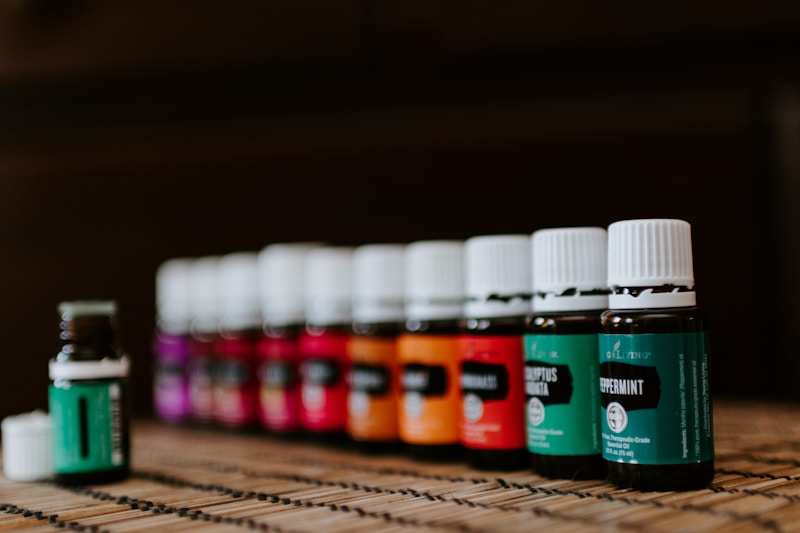18 Questions
How should opium be stored to prevent loss of morphine?
Opium should be stored in well-closed containers and not kept in the open.
What precautions should be taken when storing digitalis?
Digitalis should be stored with a dehydrating agent like silica gel or calcium chloride.
Why should squill be stored in a tightly closed container?
Squill should be stored in a tightly closed container to prevent the mucilage from absorbing moisture.
What is the recommended storage condition for biological preparations?
Biological preparations should be stored at low temperatures.
List three characteristics of ideal storage facilities for medicinal materials.
Ideal storage facilities should be well aerated, dry, and protected from light.
Why is it important to store medicinal material on shelves that keep a sufficient distance from the walls?
Storing material on shelves away from walls prevents pest infestation.
What are the ideal conditions for storing drugs?
Cool, dry place away from light
How should volatile oils and fixed oils be stored?
In sealed, well-filled containers in a cool, dark place
Why is air-drying drugs not recommended?
They are liable to attack by insects and other pests
What can deteriorate crude drugs?
Moisture and light
What is recommended for some plants before storage to reduce microbial contamination?
Sterilization
How should drugs like Digitalis and Indian hemp be stored to maintain their activity?
In sealed containers with a dehydrating agent
What are the ideal storage temperatures for fresh medicinal plant materials and frozen products?
Fresh medicinal plant materials should be stored at 2-8°C, while frozen products should be stored at less than -20°C.
What type of containers should be used to store fragile medicinal plant materials?
Fragile medicinal plant materials should be packaged in rigid containers.
Why should wooden boxes, sacks, bales, and paper bags not be used for storage of crude drugs?
Wooden boxes, sacks, bales, and paper bags should not be used for storage of crude drugs because they reabsorb moisture.
How should dried medicinal plants/herbal drugs, including essential oils, be stored?
They should be stored in a dry, well-aerated building with limited daily temperature fluctuations.
What are the quality requirements for materials used in packaging medicinal plant materials?
Materials used for packaging should be nonpolluting, clean, dry, undamaged, and should conform to the quality requirements for the medicinal plant materials.
What should be implemented to eliminate substandard materials, contaminants, and foreign matter during the final stages of packaging?
Continuous in-process quality control measures should be implemented.
Study Notes
Storage of Crude Drugs
- The most common method for preserving plant material is drying.
- All drugs should be preserved in well-closed and filled containers, stored in water-proof, fire-proof, and rodent-proof premises.
Examples of Poor Storage Conditions
- Opium: Loss of morphine occurs when stored in the open.
- Digitalis: Should be stored with a dehydrating agent to prevent enzymic reactions.
- Squill: Should be stored in a tightly closed container to prevent moisture absorption.
- Biological preparations: Need to be stored at low temperatures to preserve their activities.
Storage Premises
- Storage facilities should be well-aerated, dry, and protected from light, with air-conditioning and humidity control equipment.
- The floor should be tidy, without cracks, and easy to clean.
- Shelves should keep the material a sufficient distance from the walls, with measures to prevent pest infestation.
Storage Conditions
- Plastic sacks effectively seal the contents, but long-term storage is not recommended.
- Ideal conditions are always in a cool and dry place, away from light.
- Temperature, water, and light are the main factors that affect drugs.
Special Storage Requirements
- Digitalis and Indian hemp should not be allowed to become air-dry, or they lose a considerable part of their activity.
- Volatile oils and fixed oils should be stored in sealed, well-filled containers in a cool, dark place.
- Air-dry drugs are liable to attack by insects and other pests, and should be examined frequently during storage.
Deterioration of Crude Drugs
- Moisture can cause rapid changes of active principles due to enzymes requiring a sufficient moisture to activate them.
- Light can affect drugs, especially those containing marked colors.
- Hygroscopic materials can become deteriorated by absorbing moisture in a humid atmosphere.
Packaging and Storage
- Processed medicinal plant materials should be packaged in clean, dry boxes, sacks, bags, or other containers in accordance with standard operating procedures.
- Materials used for packaging should be non-polluting, clean, dry, and in undamaged condition.
- Fresh medicinal plant materials should be stored at appropriate low temperatures, ideally at 2-8°C; frozen products should be stored at less than -20°C.
- Small quantities of crude drugs can be stored in air-tight, moisture-proof, and light-proof containers.
- Wooden boxes, sacks, bales, and paper bags should not be used for storage of crude drugs.
Test your knowledge on the storage requirements for preserving plant material and crude drugs. Learn about the importance of well-closed containers, water-proof premises, and preventing loss of phytochemical constituents through enzymatic reactions. Identify poor storage conditions for drugs like Opium.
Make Your Own Quizzes and Flashcards
Convert your notes into interactive study material.




